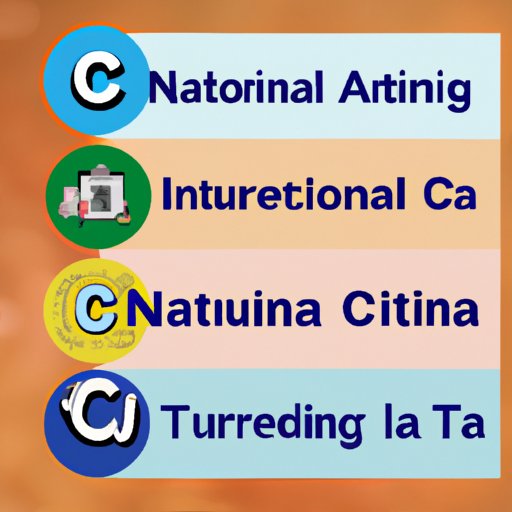I. Introduction
Are you considering a career in healthcare and wondering what it takes to become a Certified Nursing Assistant (CNA)? A CNA is a critical member of the healthcare team, providing basic nursing care to patients in hospitals, long-term care facilities, and other settings. A career as a CNA can be a personally rewarding and stable profession, with strong job growth projected for the coming years. However, before embarking on this career path, it’s important to understand how long it takes to become a CNA. In this article, we’ll explore the key factors that determine the length of CNA training programs, and offer tips for success along the way.
II. Prerequisites for CNA Programs
Before enrolling in a CNA training program, there are several prerequisites to keep in mind. Generally, you must be at least 18 years old and possess a high school diploma or equivalent. You’ll also need to be in good health, as proper infection control is a crucial part of the job. In addition, some programs may require a criminal background check, drug test, or proof of immunizations. It’s important to check with individual programs in your area to determine their exact requirements.

III. Different Types of CNA Education Programs
CNA training programs are offered through a variety of institutions, including community colleges, vocational schools, and healthcare facilities. Each option has its own pros and cons in terms of time commitment, cost, and quality of education. For example, community college programs typically take longer but offer more comprehensive education and career advancement opportunities. Vocational schools may have shorter programs but may not offer as much hands-on practice. Healthcare facilities may offer on-the-job training, but may not be accredited by state boards. When choosing a program, consider your personal needs and goals, as well as available resources such as financial aid.
IV. Length of CNA Training Programs
CNA training programs vary in length, but typically take anywhere from 4 to 12 weeks to complete. Program length can be affected by factors such as class size, scheduling (part-time vs. full-time), and whether clinical practice supervised by a registered nurse is included in the program. Students who attend online classes or take intensive courses may be able to accelerate their training process. However, it’s important to keep in mind that some states require a minimum number of clinical practice hours before becoming certified.
V. Structure of CNA Training Programs
CNA training programs are structured to provide a combination of classroom instruction and hands-on practice. Topics covered in the curriculum generally include basic nursing skills, communication, legal/ethical issues, and infection control. Clinical practice is a critical component of the training process, as it provides students with the opportunity to practice their skills in a real-life setting. Most programs require students to complete a certain number of clinical hours under the supervision of a registered nurse before sitting for the certification exam.
VI. Factors Affecting CNA Certification Time
State requirements for CNA certification can change over time, which can affect the certification timeline for aspiring CNAs. It’s important to stay up-to-date on the latest standards and regulations in your state to make sure your training and certification plans align with those requirements. In addition, programs that are not accredited by state boards may not provide the training and resources needed to pass certification exams, which can further impact the length of time needed for certification.
VII. Balancing CNA Training with Other Obligations
For many aspiring CNAs, balancing training with other obligations such as work and family can be a challenge. However, there are strategies that can help manage the time and stress of training. One option is creating a study schedule to help carve out dedicated time for coursework and studying. Seeking help from family and friends to manage household duties or finding financial aid resources to ease financial pressure can also help make training more manageable.
VIII. Success Stories in Becoming a CNA
Real-life success stories can be a great source of inspiration and motivation for aspiring CNAs. There are many people who have successfully completed CNA training and certification, despite facing challenges along the way. These success stories can remind us that everyone’s path to CNA certification is unique and that hard work and persistence can pay off in the end.
IX. Conclusion
Overall, becoming a CNA can be a rewarding career option for those who have a passion for healthcare and helping others. While the length of CNA training programs can vary, they generally take just a few weeks to a few months to complete. Choosing the right program for your needs and goals, staying up-to-date on certification requirements, and making time for training are all important factors to consider. However, with dedication and hard work, achieving CNA certification is within reach.
